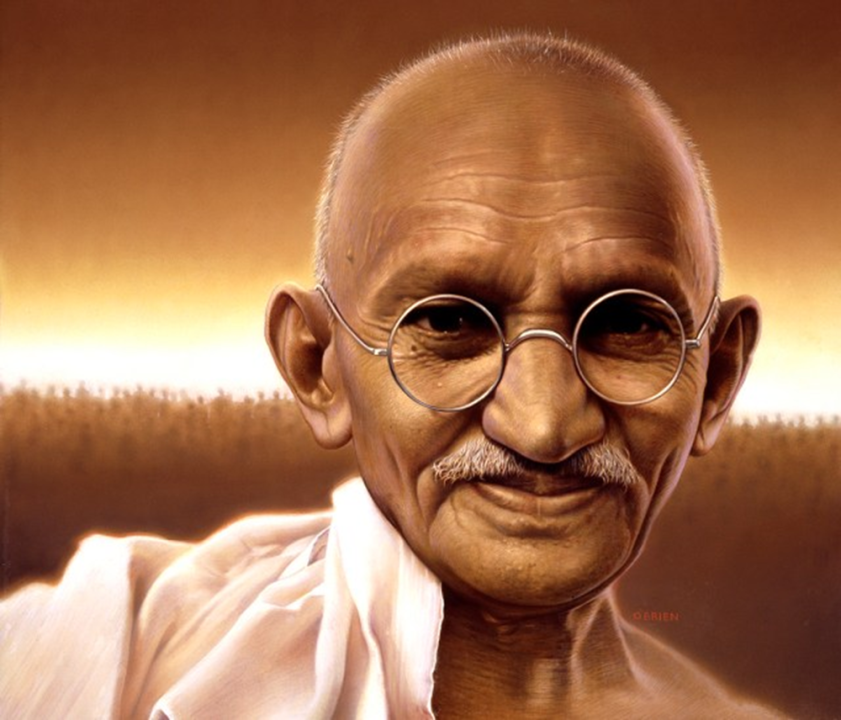
Mahatma Gandhi and the dignity of labor!
Mohandas Karamchand Gandhi was an Indian lawyer, the foremost anti-colonial nationalist and socio-political leader with strong ethical values. Gandhi led the non-aggressive resistance for the successful campaign that led to India's sovereignty from British rule and was to later inspire the global movements for civil rights and freedom. Gandhi was very concerned and critical about ethics and was devoted to moral principles that govern human behavior. He believed in the dignity of labor, and that one respects all jobs equally and does not consider one job superior to another. Gandhi believed in the respect for labor and positions in the workplace. Mahatma Gandhi had the usual desire for justice and equality, and he was motivated by a strong ethical value of right and wrong. He was very principled, empathetic, warm-hearted, and supportive.
The dignity of labor is the philosophy that all types of jobs and positions are respected equally, no occupation is considered superior or inferior to one another, and none of the jobs should be grouped on any basis. Jobs are either physical or mental, and it is held that any type of job deserves respect. Simply put, any form of work, manual or intellectual, is called labor and respecting any kind of job is called "dignity of labor". Jobs are classified based on tasks and responsibilities, and within a work setting, jobs are designed in standardized scale based on overall assignment, duties and responsibilities, pay level, and tasks assigned to it.
The dignity of labor is one of the foremost principles in the religious parlance. In Roman Catholicism, the dignity of work and the rights of workers and the affirmation of the dignity of human labor are found in several papal letters sent to all Bishops of the Roman Catholic Church, most notably the prominent writing of Pope John Paul II's Laborem Exercens (1981). This writing focused specifically on the meaning of work. It defines work as any form, manual or intellectual, and applying respect to the meaning of work is called "dignity of labor". Laborem Exercens argued that the dignity of labor is such that laborers are entitled to a stake in the business and goods that they jointly produce, and thus share in the decisions concerning the workflow, and proceeds thereof. The dignity of labor for an individual worker is lived out in society by the fulfillment of personal responsibilities. Work is one important responsibility that shapes and fulfills human dignity by providing for the personal needs and that of the family.
Corporate leaders are often guilty of violating their employees' dignity at the workplace. The scope ranges from disregarding employee’s fears, failing to understand a job well done, or even engaging in unfair treatment between two employees. Studies have shown that, on the average, fewer than 10 percent of organizations refer to discrimination, intimidation and provocation as barriers to workplace dignity. Dignity of labor, in the workplace, involves actively creating a workplace environment which encourages respect and acceptance. Any form of bullying, harassment, or discrimination is not allowed. Adherence to the corporate core values of fairness, diversity and inclusion, accountability, and honesty should be of utmost importance. Workplace dignity is a key element of a healthy work environment. A culture of dignity promotes self-respect, pride and self-worth, influences an organization's ability to foster wellbeing, and drives efficiency and sustainable corporate results.
CEOs are often tasked with designing a work environment that encourages a culture of fairness which can be quite challenging. To create a positive culture, the CEOs must not only promote this behavior, but they must also understand its importance. Employees who feel they are treated with respect and dignity are more engaged and productive than those who are not. Showing trust, granting autonomy, and recognizing the value of individual contributions, all build employees' sense of ownership of their work. There should be a standard framework for ensuring all workers are treated fairly and equally. This framework should ensure that the workplace is free from bullying and harassment, workers are treated with dignity and respect and often experience no form of victimization, and be appreciated for the skills, abilities, and intellectual capabilities they contribute to the organization’s success.
Corporate leaders should show trust, build relationships, be supportive and warm-hearted, recognize the value of the contribution by every worker in the organization, and ultimately create an employee ownership culture. The philosophy of empathy and mutual respect must prevail in a work setting. CEOs must recognize and appraise the contributions of every worker, offer encouragement and support, empower and delegate tasks, and promote work-life-balance. Workplace dignity is sacrosanct. Workers value the appreciation of his effort, fair treatment, trust, autonomy, and freedom of expression.
Mahatma Gandhi had the belief that challenging his self-discipline heightened his commitment to achieving his goals. Mahatma was an epitome of the present-day focused leaders who has the “do or die” attitude to work and corporate goals. If the dignity of labor must be protected, then the rights of the worker must be protected, the right to productive work, the right to decent and fair wage, and the right to the fair share to the ownership of the organization. Overall, corporate leaders must see their positions as equally dignifying as that of the bellhop.
enomaojo.blogpost.com